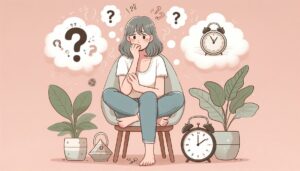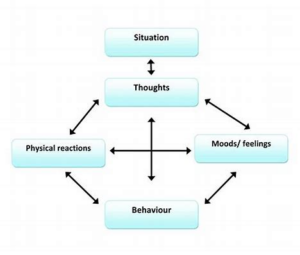Anxiety in Different Situations
Anxiety can boil up in different situations.
You might feel an overriding anxiety about your health / having an illness; maybe you’re anxious in social situations? You might have become a worrier, worrying about everything or generally feeling fearful. Anxiety could hit as extreme and fast acting panic attacks, and it can also be felt as an inability to cope.
At its core, anxiety is there to help you - to be aware of threats, enable your body and mind to react quickly. When it becomes problematic it usually means you are overestimating the danger and underestimating your ability to cope.
Which sounds so simple, but can be completely debilitating.
Anxiety is felt in our mind and body, it can direct our behaviour unless we consciously choose how to respond.
When we’re tired and have a run of bad nights, the caffeine we reach for to help manage the exhaustion can trigger physical sensations of anxiety.
Worrying and feeling anxious about how much we are worrying and feeling anxious can feed the anxiety beast. And the anxiety beast can grow quickly!
Anxiety is a strong and energetic emotion; the physical sensations of anxiety can make us panic if we believe they are something else - such as an impending heart attack. Add to that our minds' response to our anxiety and that pit of doom inside just keeps growing.

CBT and Anxiety
Cognitive behavioural therapy (CBT) is a talking therapy evidenced to reduce problematic anxiety in its different forms.
Your CBT therapist works alongside you to understand how anxiety affects you, the difficult cycles that compound and worsen your anxiety, and ways to overcome it.

Anxiety and Self-Help
As always though, there are also things we can do to help ourselves.
Focusing on your breathing - really focusing on a “inhale, pause, exhale, pause” pattern of breathing can help create a “pause” in your anxious feeling, enabling you to take control. It calms the nervous system and reduces the strength of the physical symptoms - power stuff breathing!
When frustrated with your anxiety, self-compassion can seem as though it’s disappeared to the moon. But frustration is also energetic and feeds the overall experience of anxiety. Self-compassion is calming, and calm is what you need right now.
Being compassionate includes listening to your mind: what is it your anxiety is trying to warn you about? Taking note of your thoughts gives you a window into what you need to help calm yourself.
Having keyed into your thoughts, remember self-compassion. Thank your body and mind - after all, anxiety is there to help you. Then come up with a response to your anxious thoughts.
For example, if you have thoughts about doing something stupid in front of people, respond by asking why that matters, what’s the worst that could happen if you did make a fool of yourself, and if it would still matter in 5 years time?
Activities such as yoga and meditation help you to access that centred part of yourself during times of anxiety.
Some people find active activities, such as running or other types of exercise, helps by focusing the anxious energy.
Certain foods / drinks can help calm the anxious brain such as chamomile tea, turmeric, dark chocolate, green tea, salmon and probiotic yoghurt.
Ultimately remember anxiety wants to be your friend and protector, it just can’t differentiate between a tiger attack and stress at work, or difficult family dynamics.
Try the above self-help ideas, and don’t suffer in silence, if you feel overwhelmed by anxiety do seek help. As an experienced CBT Therapist I can help you be released from anxiety. To find out more please reach out for a consultation.


